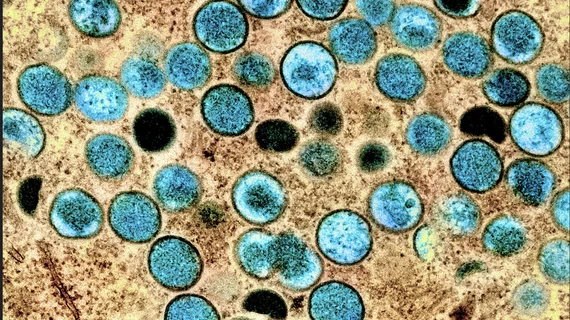Monkeypox update: FDA focuses on testing as cases continue to rise
The U.S. Food and Drug Administration (FDA) has issued a new guidance offering recommendations for validating the accuracy and reliability of diagnostic tests designed to identify monkeypox. There have been more than 21,000 confirmed monkeypox cases in the United States as of Sept. 7.
The guidance also offers optional validation templates that developers can use when submitting an Emergency Use Authorization (EUA) request, or for their own internal validation purposes.
“Today’s important actions further aid the monkeypox response by working toward expanding vital testing capacity and facilitating the detection of cases nationwide in an effort to stem the spread of the virus,” said Jeff Shuren, MD, JD, director of the FDA’s Center for Devices and Radiological Health, in the FDA's update. “The policy announced today is intended to support the development of more validated monkeypox tests and expand access to testing.”
The guidance also explains that, in order to address availability and accessibility concerns, the FDA temporarily “does not intend to enforce requirements” for certain laboratory-developed, appropriately validated tests without submission of an EUA—so long as the laboratories notify the FDA within 30 days.
Additionally, the FDA issued the first EUA for an in-vitro monkeypox diagnostic test, the Quest Diagnostics Monkeypox Virus Qualitative Real-Time PCR.
As the virus progresses, the FDA will continue to work with the public health community and update their guidance as necessary.
